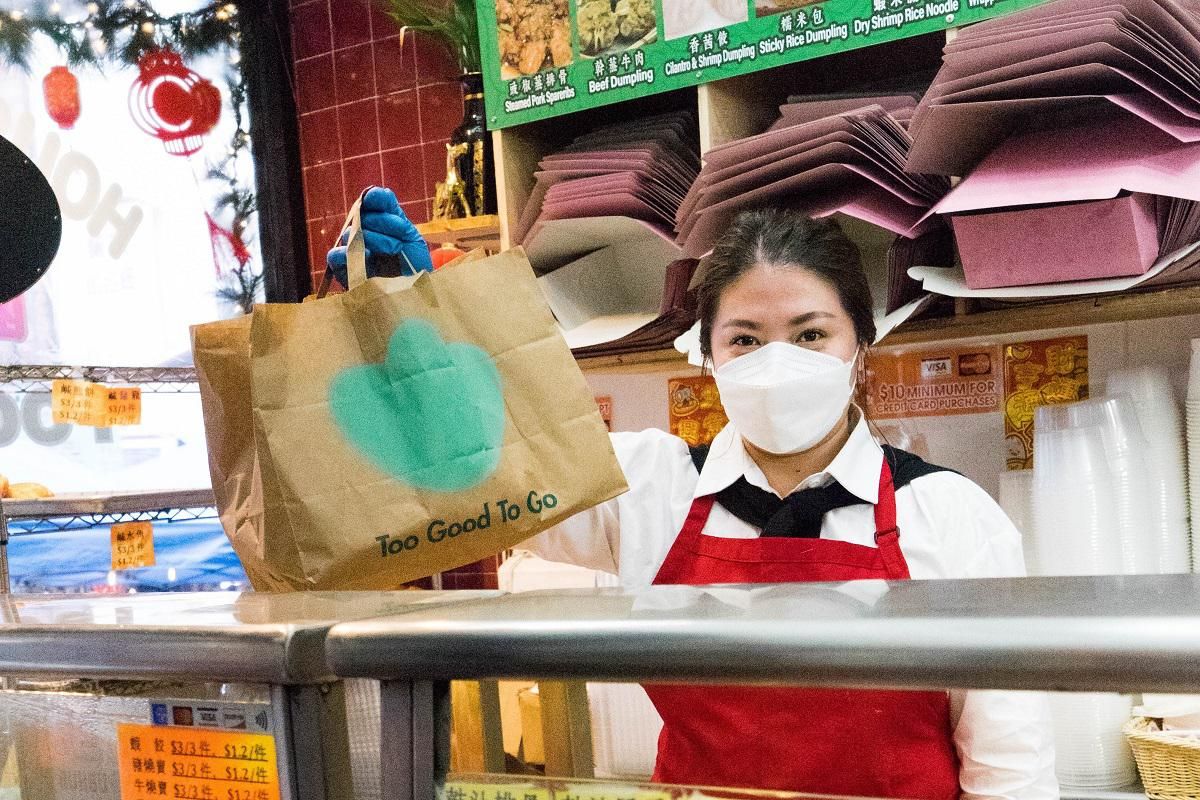At the end of every day, cafes, restaurants and grocers around the world are left with unsold perishable food. Some businesses—large grocery stores and wholesale suppliers, for example—have a large volume of leftovers that can be donated to food banks and homeless shelters. But the smaller guys—neighborhood businesses with a few leftover sushi rolls or what remains of the soup-of-the-day—more often than not, their excess ends up in the garbage.
This week, an app launching in San Francisco and Oakland will leave that equation forever changed. Too Good To Go offers users the opportunity to purchase available surpluses at local bakeries, markets, and restaurants at a major discount. In the process, everybody wins: The business recovers more of their costs, the eater fills their fridge for a song, and excess food is no longer sent to rot in a landfill.
Too Good to Go, which began in Europe in 2016, is now in 15 countries around the world. It landed on the U.S. East Coast in 2020 and this week's launch in the Bay Area marks its arrival on the West Coast. Within just a couple weeks, Too Good to Go will also be available in Seattle and Portland, and founder Lucie Basch says that's just the start.
"We plan to be in many of the major U.S. cities by the end of 2021 and eventually hope to be everywhere in North America, from big cities to small towns," she explains.
In SF and Oakland, Too Good to Go has already enlisted more than 100 local partners including Gracias Madre, Mission Chinese, Daily Driver, Mochica and La Boulangerie. Neighborhood corner stores, pizza joints, coffee shops, and other food purveyors have also joined the platform. Whenever they expect to have a surplus, these local businesses update the app to display how many "surprise bags" they have available. Users can browse the options and reserve one for themselves.

Although you never know what exactly will be in a surprise bag, the cost, typically between $3 and $6, is displayed up front. "Stores can also update the amount of surplus they have in real time based on how sales are going throughout the day," explains Basch. "This is where we fill the gap in the food rescue ecosystem, and our strategy of launching in high-density urban areas makes it easy for consumers to pick up the surplus."
Since launching in the U.S. last year, Too Good to Go has saved 250,000 meals at more than 2,000 food businesses. With California alone throwing out more than 10 million tons of food annually, the app could help to make a dent in the environmental impact of food waste here, too.
"The response in the U.S. market has been incredible," says Basch. "Americans have really embraced the concept of fighting food waste while supporting local and acting sustainably in a fun way. We've seen faster growth here than in any of the European countries we've launched to date."

As Too Good to Go continues to grow, Basch is already setting her sights on other ways to improve the sustainability of national and global food systems. In the U.K., they've recently partnered with influential food brands to raise awareness about the difference between "use by" and "sell by" labels on perishable products, a point of confusion that contributes to food waste. Basch hopes to kickstart a similar campaign here.
"We want to start thinking about how we can have a greater impact beyond our app here in the U.S.," she says. "We truly dream of a world without food loss or waste. We believe we will get there one day."
// Too Good to Go launches in the Bay Area on May 5th. The app is available for iOS and Android; toogoodtogo.org.





















